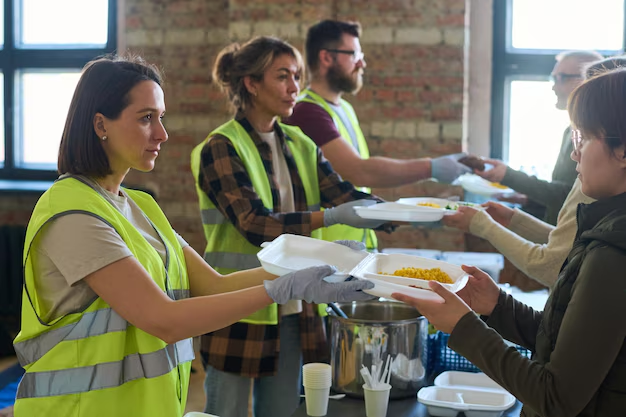Discovering Support Options Through Indianapolis Homeless Shelters: A Guide to Help and Hope
Finding yourself in need of a homeless shelter in Indianapolis can be daunting. Yet, in the midst of uncertainty, understanding the resources available can offer a path toward stability and eventual independence. Indianapolis offers a range of shelters and support services tailored to assist those going through difficult times. This article will not only introduce you to some of the compassionate services available but also explore how you can transition towards financial independence and stability.
Indianapolis Homeless Shelters: A Lifeline for Many
In Indianapolis, shelters such as Wheeler Mission, Horizon House, and Dayspring Center offer critical services to individuals and families experiencing homelessness. These shelters provide immediate shelter, food, and basic needs while also offering access to case management and long-term housing solutions.
At the core of their mission, many Indianapolis shelters aim to not only provide immediate relief but to empower people with the tools they need to secure a brighter future. They offer job training programs, mental health services, and educational resources that focus on building skills and fostering employment opportunities.
From Shelter to Financial Stability
While shelters provide essential support, achieving financial stability is a key next step. Understanding available financial assistance programs can be instrumental in this journey.
Government Aid Programs: Programs like Temporary Assistance for Needy Families (TANF) and the Supplemental Nutrition Assistance Program (SNAP) can provide short-term financial relief. These programs offer funds for basic living expenses and food, helping to alleviate immediate financial burdens.
Debt Relief Options: If debt is a barrier to financial stability, consider exploring debt relief solutions. Organizations can help consolidate debts, making repayment more manageable. Credit counseling services are also available to guide you through rebuilding your credit.
Credit Card Solutions: To avoid falling into deeper financial difficulty or to establish a positive credit line, consider secured credit cards. These cards help you build credit with responsible use and on-time payments, even if prior credit issues exist.
Investing in Education for a Better Tomorrow
Education is often a critical component of financial independence. Many educational grants and scholarships are available, and they don’t always require a sterling academic record. Community colleges in Indianapolis offer affordable education and vocational training programs designed to fit various interests and skill levels.
Adult education services, such as the Indianapolis Adult Education Program, provide GED preparation courses, basic skills enhancement, and workforce development opportunities. These resources are often free or offered at reduced rates, setting a cornerstone for personal and professional growth.
Your Toolkit for Navigating Financial and Personal Growth
Knowing where to turn for help can transform a challenging situation into a hopeful prospect. Explore these resources and take decisive steps to reclaim your path forward:
- 🏠 Shelter Services: Wheeler Mission, Horizon House, Dayspring Center
- 🤝 Government Aid: TANF, SNAP
- ✅ Debt Relief: Credit counseling, Debt consolidation services
- 💳 Credit Solutions: Secured credit cards
- 🎓 Educational Resources: Adult Education Programs, Community Colleges
Facing homelessness is never easy, but with determination and the right resources, it's possible to rebuild and deepen a sense of security and possibility. Whether through shelters, education, or financial programs, Indianapolis offers support for those ready to take their next steps toward a better future.

